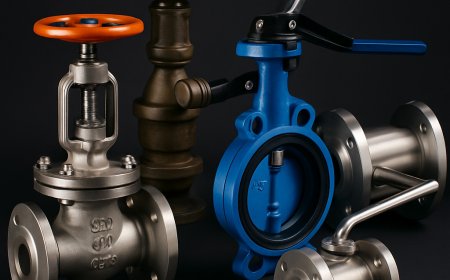Are Dental Implants Right for You? Find Out in Suwanee’s Expert Dental Clinics
Wondering if you're a candidate for dental implants in Suwanee? Learn eligibility factors, medical considerations, and next steps in this detailed guide.
Tooth loss affects more than just your smileit can influence how you eat, speak, and feel about yourself. If youre searching for a reliable, long-lasting solution, dental implants Suwanee may be the perfect fit. But how do you know if you're a suitable candidate for this popular restorative treatment? This blog explores the key criteria, health factors, and consultation steps that help determine whether dental implants are right for you.
What Are Dental Implants?
Dental implants are artificial tooth roots made of titanium or zirconia that are surgically placed into the jawbone. Once healed, they support crowns, bridges, or dentures to replace missing teeth with a look and function similar to natural ones.
Why Dental Implants Are a Top Choice
Compared to dentures or bridges, implants offer:
-
Superior durability and function
-
Natural appearance and feel
-
Bone preservation through stimulation
-
No damage to adjacent teeth
Residents choosing dental implants Suwanee benefit from modern dental technology and experienced local providers, ensuring optimal outcomes.
Are You a Candidate for Dental Implants?
Here are some signs you may be a good fit:
1. Missing One or More Teeth
If you have one or more missing teeth and want a permanent solution, implants are an ideal choice.
2. Good Oral Health
Healthy gums free from periodontal disease are essential for implant success.
3. Sufficient Jawbone Density
Your jaw must have enough bone to support the implant. Bone grafting may be required if density is low.
4. Non-Smoker or Willing to Quit
Smoking can interfere with healing and reduce the implant success rate.
5. Good Overall Health
Certain chronic conditions, such as uncontrolled diabetes or immune disorders, can affect healing. Your dentist will assess your medical background.
Medical Conditions That May Affect Eligibility
-
Diabetes (uncontrolled)
-
Osteoporosis
-
Autoimmune diseases
-
Radiation therapy in the jaw area
These do not automatically disqualify you but require further evaluation and possibly a modified treatment approach.
What Happens During the Evaluation?
If you're considering dental implants Suwanee, expect a thorough evaluation including:
-
Full medical history review
-
Dental X-rays or 3D cone-beam scans
-
Oral examination to check gum health
-
Bite analysis to assess alignment
What If Youre Not a Candidate?
Even if youre not immediately eligible, several options can improve your candidacy:
-
Bone Grafting: To rebuild lost bone mass
-
Gum Disease Treatment: To ensure a healthy foundation
-
Smoking Cessation Programs: To support healing and implant longevity
Benefits of Choosing Dental Implants in Suwanee
Suwanee offers advanced diagnostic tools, experienced dental professionals, and patient-focused care. You can expect:
-
Customized treatment plans
-
High-tech surgical precision
-
Streamlined care under one roof
Alternatives to Dental Implants
If implants arent right for you, your dentist may suggest:
-
Fixed Bridges: Anchored to adjacent teeth
-
Removable Dentures: Full or partial, depending on your needs
-
Implant-Supported Dentures: A hybrid option for more stability
Cost vs. Value
While implants have a higher upfront cost, their durability and low maintenance make them a cost-effective solution in the long run.
Next Steps
If you're still unsure about your suitability, schedule a consultation. Personalized evaluations help determine the best approach for your unique needs and goals. The journey to restoring your smile begins with just one step.
FAQs About Dental Implants Suwanee
Q1. What is the success rate of dental implants?
Success rates exceed 95% when placed by experienced professionals and maintained properly.
Q2. Can older adults get dental implants?
Yes, age is not a barrier as long as you're in good health and have adequate bone support.
Q3. What if I have existing health conditions?
Some conditions require modifications but don't necessarily disqualify you.
Q4. Is bone grafting painful?
Most patients report minor discomfort, which can be managed with medication.
Q5. How soon can I get implants after tooth extraction?
In some cases, implants can be placed immediately; in others, a healing period is required.
Q6. Are implants better than bridges or dentures?
They offer greater stability, longevity, and bone preservation but may not suit everyone.
Q7. How do I know if I qualify for implants?
A thorough consultation and exam will determine your eligibility.




































